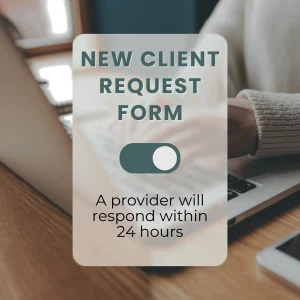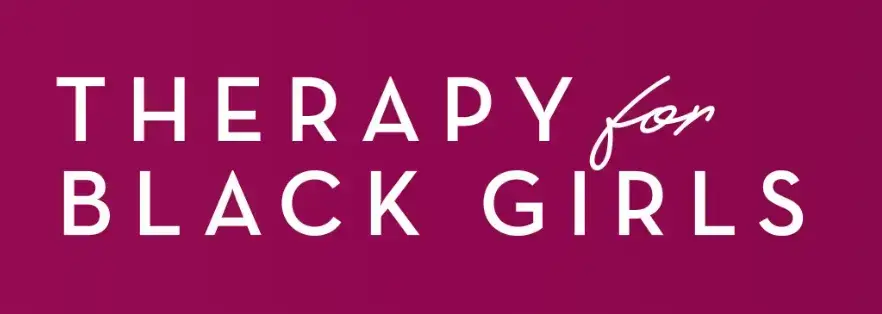
PTSD Awareness Month: You Can Heal With PTSD Treatment
Contact: [email protected]
June is PTSD Awareness Month, and there’s no better way to show your support than educating yourself on PTSD and other trauma-related conditions. PTSD (short for posttraumatic stress disorder) is a psychiatric disorder that develops in people who have experienced a traumatic event. PTSD Awareness Month aims to raise awareness and help people find support for their needs. The best way for you to support the efforts of PTSD Awareness Month is to educate yourself on trauma-related conditions to start the conversation with those around you. Having an understanding of PTSD can reduce the stigma surrounding PTSD treatment and encourage those suffering to seek the help and resources they need. As we dive into June, this is a great place to start – letting you in on everything you need to know: PTSD edition.
Who Experiences PTSD? What Kinds of Events Cause it?
PTSD can affect anyone who experiences an event involving death or the threat of death, serious injury or sexual assault. These things can happen to anyone, but each person responds to these situations in a unique way. Some of the things that can impact how a person experiences PTSD are inherited mental health conditions, emotional features of your personality, and the way your brain processes and regulates chemicals and hormones in response to stress. Physiological reactions to stress are natural, but if you are experiencing some of these nagging symptoms when attempting to cope with PTSD, it may be helpful to seek out additional resources.
Symptoms of PTSD:
- Nightmares, or intrusive memories of the event
- Uncontrollable thoughts or flashbacks
- Negative changes in thinking processes or mood
- Feelings of hopelessness
- Detachment from close relationships
- Emotional numbness
- Changes in physical and emotional reactions,
- trouble sleeping and concentrating
- Overwhelming feelings of guilt and shame
- Aggressive or dangerous behavior
PTSD Awareness: Steps Towards Healing
Step 1: Learn about PTSD
Good news – you’re already doing the first step by reading this blog! Learning about PTSD and other mental health conditions doesn’t always have to be formal research and can be done by simply talking about your experiences with others. Finding out what others are going through with their condition and in PTSD treatment is a good way to relate your experiences to someone else’s. You are not alone, and productive conversation can help you show support for one another.
Step 2: Practice relaxation at home
This may seem like an obvious tip, but practicing intentional relaxation behaviors can make a positive impact on your mental health. Here are some ideas:
- Breathing exercises
- Meditation
- Yoga
- Swim, walk, stretch
- Listen to music
- Spend time outdoors
- Creative Activities, such as painting, ceramics or drawing
Step 3: Counseling
Sometimes at-home coping strategies are enough to get people through PTSD symptoms, but if you’ve tried all of these and you’re still experiencing symptoms, it may be time to seek professional advice. Admitting you need help and asking for it is often the most challenging and intimidating part of being treated, but the results will be worth it in the long run. There are a LOT of options to choose from when it comes to treatment, so doing the research to find the right fit for you is important.
While some of these activities may seem exhausting at first, when done consistently they can decrease stress levels. If done consistently enough, relaxation practices may become a part of your new and improved daily routine.
Turning Negatives into Positives: Posttraumatic Growth
When you live through a traumatic event, it may not seem like there is much of a silver lining, but posttraumatic growth is one that can be severely underrated. Posttraumatic growth (or PTG) is the positive psychological change individuals can experience after a crisis or traumatic event. This change comes from the process of shifting the struggle of a traumatic event into a different perspective and better life path through personal means or through formal PTSD treatment. Shifts like this can change the way you understand yourself, others, and the world around you. PTG does not discount or diminish the trauma that develops from any event, but the idea suggests people can be challenged to foster positive personal growth in the face of hardship.
Posttraumatic growth sounds great, but how do you actually achieve it? There’s a couple of ways you can adjust your mental stance to fit the guidelines of PTG, starting with improving your state of mind.
How to change your state of mind
Changing your mindset sounds simple, but can be a really difficult task, especially when you’re dealing with an emotional situation. Remind yourself that you are in control of your emotions and your actions. By taking control of emotions such as anxiety, anger, and guilt, you can begin to shift the way you look at traumatic experiences. If you let negative emotions get out of control, you might find yourself focusing too much on the failures or tough spots of the event rather than what you’ve done since then that has helped you move in a positive direction.
Limit Negative Self-Talk
When you limit self-destructive emotions, and focus more energy into channeling the rational ones, it is much easier to face and accept the realities of your situation and move on. Do remember that negative emotions are natural, but by allowing yourself to recognize and accept them, you can control what steps to take next without letting those emotions weigh you down or hold you back.
Talk it out:
When you are working through a traumatic event, one of the things that will help comfort you most are the people you surround yourself with. Being able to talk about what happened, what came of the situation, and make sense of the whole thing with someone else will remind you that you’re not alone in this. Sharing your experiences with others can also open you up to different outside perspectives that you wouldn’t otherwise have, whether it be a casual conversation with a close friend, or professional PTSD treatment at an office. You never know what could change the way you see your situation, your life and your future in a positive way, and talking with others will open you up to the possibility.
Acceptance:
One of the most important milestones on the path to posttraumatic growth comes from recognizing that you can’t change what happened, accepting it, and using this to make your next move in life even better. When you adopt this mindset, you can then shift to applying it to the rest of your life as you live it. You can’t control everything, so focusing your energy towards things that you can control will propel you in a more productive and positive direction in the long term.
prioritizing healing During PTSD Awareness Month
If you think you’ve moved on from your trauma, you likely have, but whether you are still struggling or not, there is always room for improving yourself and your quality of life moving forwards. Working towards PTG with PTSD treatment and other means can improve your life in a number of ways that you may have never imagined before. Here are just ten of the ways your life can change for the better once you achieve posttraumatic growth, emotionally, physically, and in the long term.
- You will have more meaningful relationships.
- You will have a richer life with fulfilling responsibilities.
- You will have the ability to set and reach new goals.
- You will have increased self confidence.
- You will find a greater meaning of life.
- You will adopt a newfound sense of purpose.
- You will have a more open attitude towards others.
- You will find a new sense of purpose.
- You will recognize and prioritize your own personal values.
- You will be more willing and able to support others as well.
Going through the healing process or PTSD treatment necessary to experience posttraumatic growth is a grueling process, and once you get there you have earned yourself a toolbox of strategies you can now implement for the rest of your life to face any struggle that comes your way.
Resources to Help You Through PTSD Treatment
Mind By Design offers many different online options for those in need of PTSD treatment, allowing each individual to find their best fit. These are some of the PTSD specific options that Mind By Design can integrate you with.
Our counselors at Mind By Design can help you determine the best course of action and how to help you grow from here. Schedule a free 10-15 minute consultation with one of our experts today.
Ready to start Therapy?
📲 Call
💬 Text
💌 Email
📝 Request a Discovery Call

FAQ's About Therapy in New Jersey
How do I get started as a new client?
New Clients can reach out to us directly via call, text or email here:
Or, you can complete a new client form and we’ll reach out to you within 24 hours here:
What are your specialties?
Our therapists have dedicated their clinical work to specific niche areas. Check out our therapy service page here to learn about our areas of expertise
What type of therapy do you offer?
We offer traditional and non-traditional therapy
Traditional therapy, such as talk therapy incudes:
- Individual therapy
- Couples Counseling
- Family Therapy
- Cognitive Behavioral Therapy
- Emotion-Focused Therapy
Do you offer Ketamine Therapy?
Yes! Ketamine has shown promise in treating various mental health conditions, including PTSD, Anxiety, Depression, Phobias and OCD. As Ketamine therapy providers, we offer this service to help clients break cycles of thinking traps that lead to compulsive behaviors.
Is Online Therapy As Effective As In-Person Therapy?
Online therapy is essentially face-to-face counseling, just conducted remotely. Studies show that teletherapy is as effective as traditional counseling. Professional organizations and state governments recognize its benefits and have set regulations for it. However, like any therapy, its success in achieving your goals isn’t guaranteed. It’s important to discuss with your therapist whether teletherapy is working for you.
What age groups do you serve?
Currently, we work with New Jersey clients ages 10+
Do you offer traditional talk therapy?
of course! though we have some unconventional therapy approaches, we are rooted in evidenced based practices. Talk therapy is a major player in the therapy room! See What we Treat and Integrative Services for more information
What Geographic Areas Are Served?
Currently, we serve clients in New Jersey and are expanding to other states as telehealth laws evolve. While telehealth offers the convenience of attending sessions from anywhere, state laws require clients to be in-state during their session.
Does my insurance cover my visits?
We provide”Courtesy Billing” for clients who are using the Out-of-network insurance benefits.
Our Insurance Page shares a small blurb about Why We Left Insurance Panels
Can I Change Therapists If I'm Not Happy?
Yes, you can switch therapists to another provider within the practice, or we can provide you a referral if preferred. We want to ensure that your time and effort are well spent, and that you are getting the relief you need, that’s why we work collaboratively with each other in the practice, as well as outside therapists who we know and trust.
What is your cancellation policy?
We ask that clients provide at least 24 hours notice in the event that they need to cancel to avoid the 50% cancellation fee. we understand that life happens and do our best to be flexible & reschedule.
How Do I Know If Therapy Is Helping?
You should feel like you’re making progress. Signs it’s working include:
Feeling comfortable talking to your therapist
Your therapist respects boundaries
You’re moving towards your goals
You feel listened to
You’re doing better in life
Your self-esteem is getting better
Is Online Therapy Easy to Use for Non-Tech-Savvy People?
Yes, it’s pretty simple to access sessions. You’ll need basic internet skills, such as opening and visiting the patient link sent to you via email. It’s similar to video chatting like Facetime or Zoom. We can also walk you through it on the phone the first time to ensure a strong connection
What Questions Should I Ask My New Therapist?
Feel free to ask anything. Some good questions are:
- How often will we meet?
- What do you specialize in?
- What experience do you have with my issue?
- What outcomes can I expect?
- How will I know I’m progressing?
- How long do you usually work with clients?
- How will we set my treatment goals?
How Should I Prepare for My First Session?
Showing up is all that you need to do! But if you really want to get the most out of session, it could help to take some time to think about what you want from therapy. It helps to write down your goals, questions you have or things that you feel are important to share.
What is the difference between associate therapists & fully licensed therapists?
Our Qualifications:
Our founder, Rebecca Sidoti, is a highly qualified, state-licensed therapist and supervisor with extensive training in anxiety related disorders and innovative treatment such as Ketamine Therapy. Mind by Design Counseling adheres to standards set by the our governing counseling boards.
To see each providers credentials, training and licenses, visit our “Meet the Therapists” Page to learn more.
- LAC/LSW are therapists who may practice clinical work under the supervision of a fully licensed therapist.
- LPC/LCSW are therapists who have completed the necessary clinical hours post-graduation under supervision and can practice clinical work independently.
Is Virtual Counseling Suitable for Everyone?
Online therapy might not be as effective for individuals with chronic suicidal thoughts, severe trauma, significant mental health history, or those recently in intensive care. Such cases often benefit more from traditional, in-person counseling. We’ll help you decide if our online services are right for you during your intake and evaluation.
What Equipment is Needed for Online Therapy?
To join a session, log in using the credentials we provide. No downloads are needed. Our platform, compatible with both individual and group sessions, requires:
A computer or mobile device with a webcam and internet access.
We’ll help you test your setup before your first appointment to ensure a reliable connection. iOS users should use the Safari browser for mobile and tablet sessions.
What Questions Will Therapists Ask Me?
It depends on your goals. Expect questions about your thoughts, feelings, relationships, work, school, and health. They’ll ask to understand your therapy goals.
How Do You Keep Client Information Secure?
Security and Confidentiality of Sessions:
Your privacy is crucial to us. We use TherapyNotes, a HIPAA-compliant platform, ensuring secure and confidential teletherapy sessions. This platform’s security features include encrypted video connections, secure data transfers, and encrypted databases, ensuring your information is safe at all times.
What is VRT used for?
we use VRT to support Exposure Therapy, a long standing traditional therapy modality to treat phobias, anxiety and stress. we send a headset directly to your home so you can access VRT from anywhere.
VRT not only helps with exposure therapy for phobias, but is great for ADHD, mindfulness, PTSD and social anxiety.











